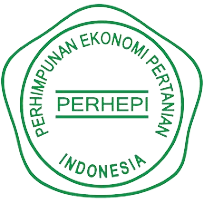Pubication Ethic

Jurnal Manajemen Agribisnis dan Agroindustri (JMAA) is a peer-reviewed journal, and therefore, it is expected that all parties involved in its publication including editors, reviewers, authors, and the publisher adhere to the following standards of publication ethics. Jurnal Manajemen Agribisnis dan Agroindustri follows the guidelines established by the Committee on Publication Ethics (COPE) in handling all aspects related to publication ethics, including addressing research misconduct and publication errors. The following sections outline the ethical standards and responsibilities for editors, reviewers, and authors to ensure the integrity and credibility of the journal's publication process.
Additionally, Politeknik Negeri Jember, as the publisher of Jurnal Manajemen Agribisnis dan Agroindustri, fully supports the journal's commitment to timely and ethical publication. However, the publisher does not interfere with the editorial decisions or compromise the integrity of the published content.





